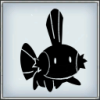- Portals
- The Current Year
- ED in the News
- Admins
- Help ED Rebuild
- Archive
- ED Bookmarklet
- Donate Bitcoin
Contact an admin on Discord or EDF if you want an account. Also fuck bots.
A bit sus
It is common knowledge that sus stands for suspicious. "A bit sus" (often accompanied by surreptitious nose tapping, which makes people look stupid) is an adjective meaning that an innuendo has just occurred, is currently in the process of occurring, or will occur in the near future, or that something or somebody is not what it seems. Its main use is irony, because anyone who doesn't get the joke is either not a raging faggot, or an idiot.
The word 'sus' is derived from a British stop-and-search law known as 'Stopped Under Suspicion' (SUS). It is therefore an abbreviation derived from an abbreviation for itself.
Nowadays, the already unfunny expression got more obnoxious since the arrival of Among Us.
Nothing Sus
Stemming from a defunct TV show in which two homosexual men did suspicious things like vaccuum clean each others pants and suck on large sausages, following which they would say "Nothing sus!" Nothing Sus is therefore synonymous with A Bit Sus, only with extra irony, unless you are already using A Bit Sus with irony, in which case it signifies that the innuendo involved teh ghey.
Using 'A Bit Sus' In Conversation
Discussing Theology
- Tales From The Gloopy Minstrel
- "Oh yeah, and they thought it was a bit sus how [Jesus] could walk on water in winter, because they didn't know what ice was, for some reason."
Reliving Victories Over The Law
Getting To Know Your Friends
- Dachau Blues!
- "Oi.. Mike. In the photo what are you doing with your hands??? It looks a bit sus!"
Things that are A Bit Sus

- Among Us
- Mediacrat
- Michael Jackson
- Goths
- Most of the Livejournal staff
- Marilyn Manson
- YouTube Poop
- any information concerning niggers which does not refer to pimpin', hos or grape soda

|
A bit sus is part of a series on Visit the Memes Portal for complete coverage. |
| A bit sus is part of a series on Language & Communication | |
|---|---|
Languages and Dialects • Grammar, Punctuation, Spelling, Style, and Usage • Rhetorical Strategies • Poetry •
The Politics of Language and Communication • Media • Visual Rhetoric
Click topics to expand |

|